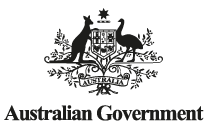Inspector-General of Biosecurity review of at-border delivery of human biosecurity functions – Ruby Princess cruise ship incident
A report on at-border delivery of critical human biosecurity functions related to the Ruby Princess cruise ship incident and similar matters was issued today by Australia’s Inspector-General of Biosecurity, Mr Rob Delane.
In 2018, 200,000 visitors entered Australia on cruise ships from 145 countries. The Australian cruise industry is estimated to generate a net economic output into Australia’s economy of about $5 billion annually.
The Ruby Princess cruise ship arrived at the Port of Sydney on 19 March 2020 and after it docked, almost 2,700 passengers, some with cold and influenza-like symptoms, were allowed to leave the ship. In the weeks following, more than 663 passengers and crew tested positive to coronavirus disease (COVID-19) and 28 passengers died.
The Inspector-General prioritised this review in September 2020 following consideration of a request from the Minister for Agriculture, Hon. David Littleproud MP to examine relevant matters that arose through the arrival of the Ruby Princess cruise ship in Sydney on 19 March 2020.
Intercepting Listed Human Diseases and managing human health risks along the Vessels (sea passengers) and Travellers (air passengers) biosecurity pathways before they enter and establish in Australia is a complex challenge for the Department of Agriculture, Water and the Environment (Agriculture) and partner agencies.
Several foreign commercial vessels that entered Australian waters, including container vessels, cruise vessels, bulk cargo and break-bulk cargo vessels and livestock vessels, presented COVID-19 and other human health risks after World Health Organization’s announcement of COVID-19 as a global pandemic on 30 January 2020.
The Biosecurity Act 2015 (Cth)—which provides powers for the protection of health of all Australians—is jointly administered by Agriculture and the Department of Health (Health). A Memorandum of Understanding (MoU) formalises the working relationship between the 2 agencies, and this review found that there were weaknesses in Agriculture’s management of human biosecurity functions as the agreed, vital collaborative, preventative human biosecurity activities were not delivered in the way they were intended by the 2017 MoU.
The review found that the department must strengthen arrangements for intercepting Listed Human Diseases and human biosecurity risk material to ensure that efforts are being directed to areas of highest risk. He made several observations for improvements in Agriculture’s current management of human health risks and recommended:
- Frontline staff are committed to delivering good biosecurity outcomes. However, the organisational capability and support for the delivery of quality biosecurity functions is often not up to the same level. This could be improved through specific training and updated instructional material, in consultation with Health.
- The Health‒Agriculture MoU is critical to Australia’s human biosecurity and should be reviewed independently for effective human biosecurity management to ensure identified and agreed roles and responsibilities of each agency are efficiently delivered. This MoU should be reviewed biannually by an independent reviewer for effective human biosecurity management to ensure the agreed responsibilities of each agency are efficiently delivered.
- The Biosecurity Act 2015 needs to be amended to provide greater flexibility in managing pratique, based on human biosecurity risk, and provide broader powers for managing large numbers of passengers and crew with potential Listed Human Diseases onboard foreign commercial vessels seeking permission to enter Australia.
Agriculture also needs to transform the information systems that underpin its human health activities. This will strengthen active management and communication of biosecurity risk, enabling effective industry stakeholder participation in human health risk management, pre-border prevention and post-border surveillance activities alongside its plant, animal and environmental biosecurity risk management efforts.
The report includes 42 recommendations to improve the management of human biosecurity in the Vessels Pathway. Of these 42 recommendations, Agriculture agrees fully or in-principle with 38 recommendations and noted the remaining 4.
Mr Delane emphasised that Agriculture should prioritise and properly resource these improvements irrespective of other work pressures and biosecurity incidents. Failure to implement the recommended changes increases the risk of Listed Human Diseases entering Australia.





